detail profile robin spry
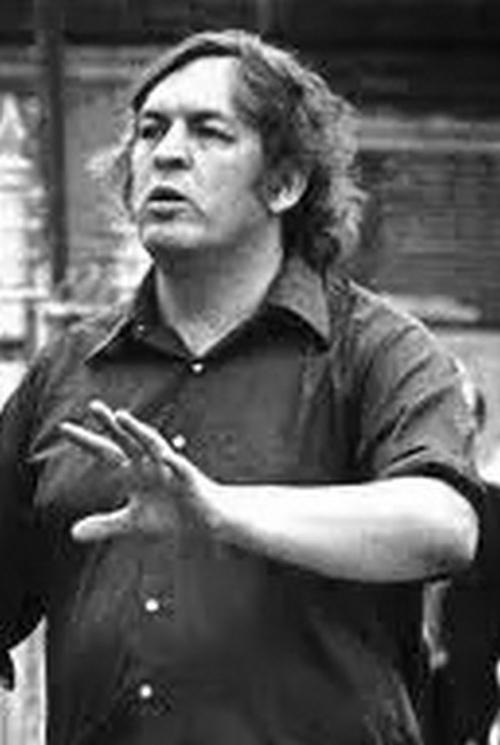
Riwayat Hidup
Robin Spry (October 25, 1939 – March 28, 2005) was a Canadian film director and television producer and screenwriter.
Spry was perhaps best known for his documentary films Action: The October Crisis of 1970 and Reaction: A Portrait of a Society in Crisis about Quebec's October Crisis.
Robin Spry was born in Toronto, Ontario to Canadian broadcast pioneer Graham Spry and economic historian Irene Spry.
After studies at Oxford University and the London School of Economics, Spry began his filmmaking career in 1964 at the National Film Board in Montreal, earning a place on its payroll in 1965 and remaining there until stepping down in 1978.
While at the NFB Spry built a reputation as a documentarist engaged with the issues of the day, with films on abortion, youth rebellion, and contemporary politics.
His Prologue documented the riots at the 1968 Democratic National Convention in Chicago, weaving narrative with archival footage to become, in 1969, the first Canadian film to appear at the Venice Film Festival.
His Canadian Film Award-winning documentary Action: The October Crisis of 1970 (1973) used a similar approach to tell the story of the kidnapping of British diplomat James Richard Cross and the murder of Pierre Laporte.
Spry also tried his hand at other aspects of the film trade, acting as a producer, filmmaker, screenwriter, actor, cinematographer and film editor, and appearing in several colleagues' films, including Denys Arcand's Québec, Duplessis et après" (1972), reading out sections of the 1837 Durham Report.
Spry starred in the 1981 hostage film Kings and Desperate Men.
In the mid-1970s Spry left the NFB to focus on production work, founding Telescene and then, upon its bankruptcy in 2000, continuing to work with other production firms in Montreal.
Among the films he produced were Léa Pool's À corps perdu (1988), André Forcier's Une histoire inventée (1990), and John Hamilton's The Myth of the Male Orgasm (1993); he was also responsible for a number of television series, such as The Lost World.
Other notable works included the 1995 mini-series, Hiroshima, about the events leading up to the atomic bombings of Hiroshima and Nagasaki, which won a Canadian Gemini Award and was nominated for an American Emmy, as well as earlier films One Man (1977), Drying Up the Streets (1978), and Suzanne (1980).
Spry died in an early-morning road accident on March 28, 2005 in Montreal, Quebec, leaving behind a son, Jeremy, and a daughter, Zoé, whom he had fathered by journalist Carmel Dumas (from whom he was divorced at the time of his death).
The first season of Charlie Jade was dedicated to his memory, as mentioned in the credits of the final episode, as was Air Crash Investigation's episode "Mistaken Identity".
Source: Article "Robin Spry" from Wikipedia in English, licensed under CC-BY-SA 3.
0.
Info Pribadi
Peran Yang Di Mainkan Robin Spry
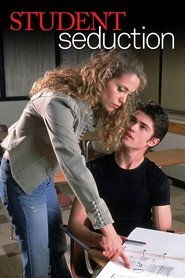 Christie Dawson always wanted to be...
Christie Dawson always wanted to be...Student Seduction 2003
Christie Dawson always wanted to be the "cool" teacher. But her world is shaken up after a pupil's crush spirals out of control and he sexually assaults her. Suddenly, her colleagues, neighbors and even her hubby are wondering whether she crossed the line and tempted her student. But school isn't out for Christine just yet she's gonna fight back, and big time!
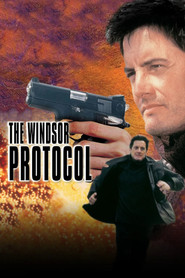 Based on the novels by Jack...
Based on the novels by Jack...The Windsor Protocol 1998
Based on the novels by Jack Higgins, Sean Dillon is a maverick British agent who uncovers a plot to take over the presidency of the United States. The Windsor Protocol is a list created by Adolf Hitler that will help revive the Nazi party; Dillon must find it before it falls into the wrong hands.
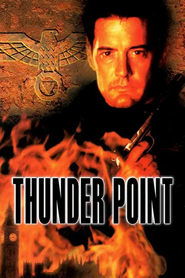 Former IRA agent Sean Dillon comes...
Former IRA agent Sean Dillon comes...Thunder Point 1998
Former IRA agent Sean Dillon comes to the rescue when a woman discovers a briefcase containing plans that could destroy all of Europe. Dillon's assignment is to protect her until the plans can be properly destroyed.
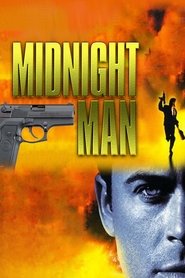 British soldiers force a recently captured...
British soldiers force a recently captured...Midnight Man 1997
British soldiers force a recently captured IRA terrorist to cooperate with them and then assign him to go undercover with a gang of terrorists and prevent them from killing the U.S. President. But the spy isn't in long before he realizes that the first plot is but a ruse for a more sinister scheme that could result in trouble between China and Great Britain.
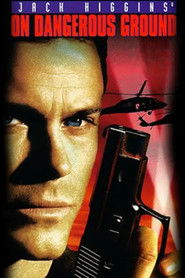 Vusi Madlazi returns to the South...
Vusi Madlazi returns to the South...On Dangerous Ground 1996
Vusi Madlazi returns to the South African village he left as a young boy (he was organizing against apartheid, and left in fear of his life) to bury his father. He meets up with his brother Ernest, who tells him their other brother Stephen couldn't be contacted. Vusi goes to Johannesburg to find him, but at first can only find his neighbor/girlfriend, Karin, a stripper. Vusi proceeds to learn how conditions have changed since the end of apartheid, not always for the better for black men.
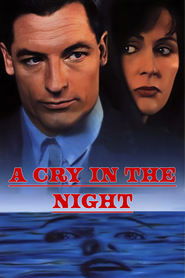 A divorced mother suspects that she...
A divorced mother suspects that she...A Cry in the Night 1992
A divorced mother suspects that she and her two children may be in danger because of her insanely jealous new husband
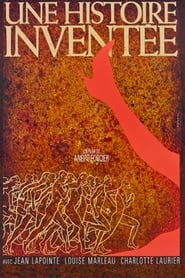 In this tragicomedy Toni is the...
In this tragicomedy Toni is the...An Imaginary Tale 1991
In this tragicomedy, Toni is the director of a staged rendition of Othello in Montreal. It is a pet project of his, financed by his loving mafia uncle. Unbeknownst to him, the audiences are also rounded up (and paid) by the same uncle. Some of them have seen every performance of this tragic play, and are understandably bored, so when the backstage romantic shenanigans of the actors result in absurd situations onstage, the audience is delighted. There are a huge number of romantic situations going on in this film at the same time. One of them involves Gaston a somewhat world-weary jazz musician, and Florence, a glamorous middle-aged woman who has been pining for him for years. Another involves to members of the musician's jazz trio. Yet another involves the play's Desdemona, Soledad, the girlfriend of the man playing Othello, who can't keep his hands off his (female) dresser.
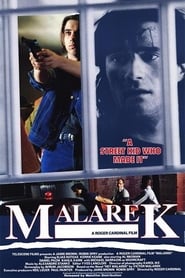 Malarek is a film directed by...
Malarek is a film directed by...Malarek 1988
Malarek is a film directed by Roger Cardinal in 1989. Ex-juvenile offender Victor Malarek catches a break when he's hired as a cub reporter for the Montreal Star. After witnessing a cop murder a street kid, Malarek dedicates himself to exposing corruption in the social welfare system.
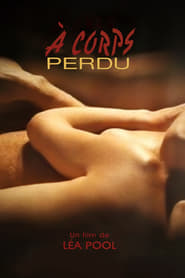 Pierre is a Montreal photojournalist who...
Pierre is a Montreal photojournalist who...Straight for the Heart 1988
Pierre is a Montreal photojournalist who returns from Nicaragua to find that his ten-year menage a trois is over. Haunted by his mid-life crisis, he becomes obsessed with trying to find out why his two lovers, Sarah and David, have left him.
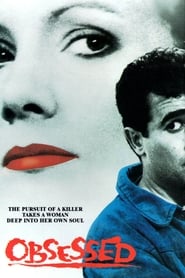 Canadian businesswoman Dinah Middletons is devastated...
Canadian businesswoman Dinah Middletons is devastated...Hitting Home 1988
Canadian businesswoman Dinah Middleton's is devastated when her teenage son, Alex, is killed by a hit-and-run driver. When the police fail to turn up any suspects, she turns private detective to track the killer down. She traces the murderer to New York, only to discover that the crime is not covered by the extradition treaty between Canada and the US. She becomes obsessed with bringing the criminal to justice.
 The CIA KGB and RCMP are...
The CIA KGB and RCMP are...Keeping Track 1987
The CIA, KGB and RCMP are after a lady banker (Kidder) who has a piece of mutated microchip that engages directly with brain cells.
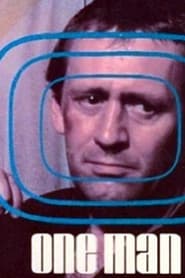 In this socially conscious drama a...
In this socially conscious drama a...One Man 1977
In this socially conscious drama, a TV journalist begins investigating a large factory that has been threatening the health of the children who live in the town's poorest, most polluted section. Because of his investigation, he and his family are threatened by company thugs. He gets no help from his TV station as they are loathe to tangle with big business.
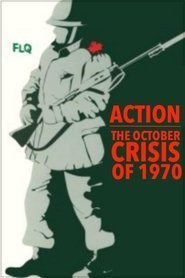 A long and thoughtful look at...
A long and thoughtful look at...Action : The October Crisis of 1970 1973
A long and thoughtful look at those desperate days of October 1970, when Montréal awaited the outcome of FLQ terrorist acts. This film puts the October Crisis in the long perspective of history. Compiled from news and other films, it shows independence movements past and present, and their leaders; it reflects the mingled relief, dismay, defiance, when the Canadian army came to Montréal; and it shows how political leaders viewed the intervention.
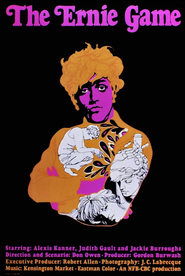 This fictional feature follows a twentysomething...
This fictional feature follows a twentysomething...The Ernie Game 1968
This fictional feature follows a twenty-something man who is struggling to define his position in the world in early adulthood. He has left their parents' home but still has not made an home of his own. Our protagonist’s alienation is palpable; for him life is a game, not because he chooses to make it so, but because he is unable to make anything more of it. But for those who befriend him and eventually turn him loose again, his game is not enough.
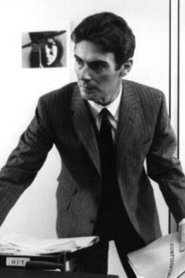 A tale from downtown where the...
A tale from downtown where the...Little White Crimes 1966
A tale from downtown, where the morality of business is not always as transparent as the shining glass fronts of the office buildings. The film follows the adventures of a young man on the way up, intent on building an image to match his ambitions. In doing so he leaves a trail of hurt feelings among those he uses as steps toward his goal.
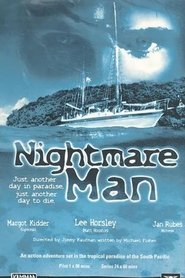 After recovering from a nearfatal wound...
After recovering from a nearfatal wound...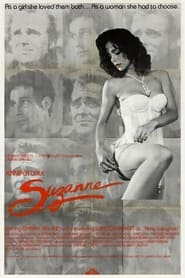 An unhappy married woman has an...
An unhappy married woman has an...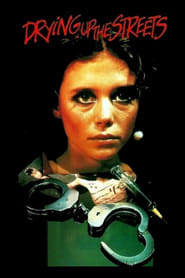 An exjunkie takes on seedy urban...
An exjunkie takes on seedy urban...